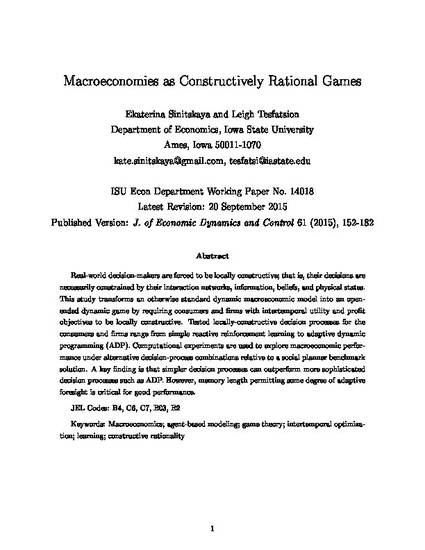
Real-world decision-makers are forced to be locally constructive; that is, their decisions are necessarily constrained by their interaction networks, information, beliefs, and physical states. This study transforms an otherwise standard dynamic macroeconomic model into an open-ended dynamic game by requiring consumers and firms with intertemporal utility and profit objectives to be locally constructive. Tested locally constructive decision processes for the consumers and firms range from simple reactive reinforcement learning to adaptive dynamic programming (ADP). Computational experiments are used to explore macroeconomic performance under alternative decision-process combinations relative to a social planner benchmark solution. A key finding is that simpler decision processes can outperform more sophisticated decision processes such as ADP. However, memory length permitting some degree of adaptive foresight is critical for good performance.
Available at: http://works.bepress.com/leigh-tesfatsion/12/

This is a working paper of an article from Journal of Economic Dynamics and Control, Vol. 61 (2015), 152-182, doi:10.1016/j.jedc.2015.09.011.